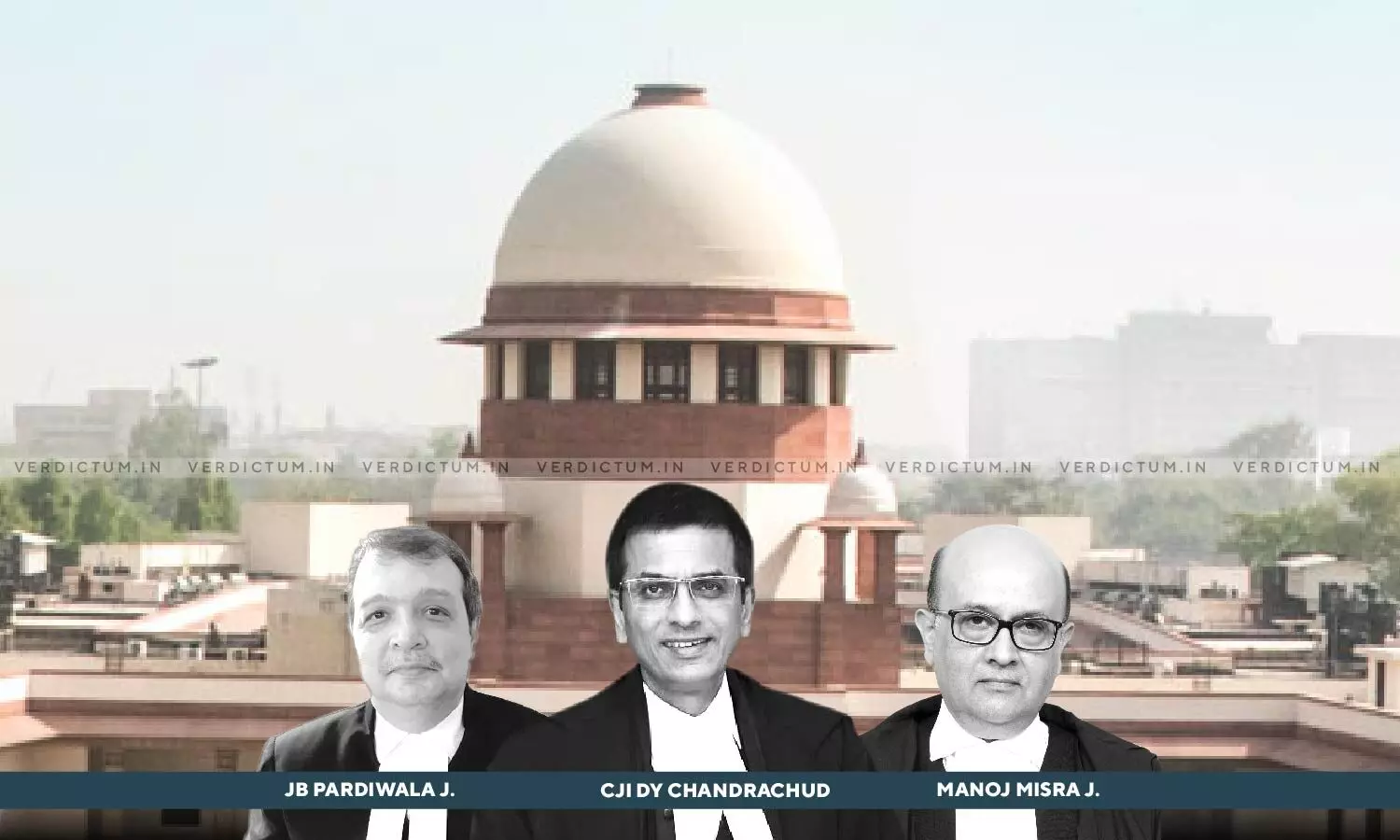
Supreme Court Upholds Constitutionality Of Insolvency Resolution Process For Individuals & Partnership Firms U/Sections 95-100 IBC
 |
|The Supreme Court upheld the constitutional validity of insolvency resolution process for individuals and partnership firms under Sections 95-100 of the Insolvency and Bankruptcy Code, 2016.
The Bench of Chief Justice Dr DY Chandrachud, Justice JB Pardiwala and Justice Manoj Misra was hearing a batch of 384 writ petitions under Article 32 of the Indian Constitution challenging the constitutional validity of Sections 95 to 100 of the IBC.
The Court held that, "The provisions of Section 95 to Section 100 of the IBC are not unconstitutional as they do not violate Article 14 and Article 21 of the Constitution.".
Senior Counsel Dr Abhishek Manu Singhvi, among others, appeared for the petitioner, while Solicitor General Tushar Mehta appeared for the Union of India and Senior Counsel Rakesh Dwivedi the State Bank of India. Senior Counsel Nakul Dewan also opposed the petitions.
The Apex Court made the following notable observations:
1) No judicial adjudication is involved at the stages envisaged in Sections 95 to Section 99 of the IBC;
2) The resolution professional appointed under Section 97 serves a facilitative role of collating all the facts relevant to the examination of the application for the commencement of the insolvency resolution process which has been preferred under Section 94 or Section 95. The report to be submitted to the adjudicatory authority is recommendatory in nature on whether to accept or reject the application;
3) The submission that a hearing should be conducted by the adjudicatory authority for the purpose of determining ‘jurisdictional facts’ at the stage when it appoints a resolution professional under Section 97(5) of the IBC is rejected. No such adjudicatory function is contemplated at that stage. To read in such a requirement at that stage would be to rewrite the statute which is impermissible in the exercise of judicial review;
4) The resolution professional may exercise the powers vested under Section 99(4) of the IBC for the purpose of examining the application for insolvency resolution and to seek information on matters relevant to the application in order to facilitate the submission of the report recommending the acceptance or rejection of the application;
5) There is no violation of natural justice under Section 95 to Section 100 of the IBC as the debtor is not deprived of an opportunity to participate in the process of the examination of the application by the resolution professional;
6) No judicial determination takes place until the adjudicating authority decides under Section 100 whether to accept or reject the application. The report of the resolution professional is only recommendatory in nature and hence does not bind the adjudicatory authority when it exercises its jurisdiction under Section 100;
7) The adjudicatory authority must observe the principles of natural justice when it exercises jurisdiction under Section 100 for the purpose of determining whether to accept or reject the application;
8) The purpose of the interim-moratorium under Section 96 is to protect the debtor from further legal proceedings; and
9) The provisions of Section 95 to Section 100 of the IBC are not unconstitutional as they do not violate Article 14 and Article 21 of the Constitution.
Accordingly, the petitions were dismissed.
Cause Title: Dilip B Jiwrajka vs Union of India & Ors
Click here to read/download the Judgment